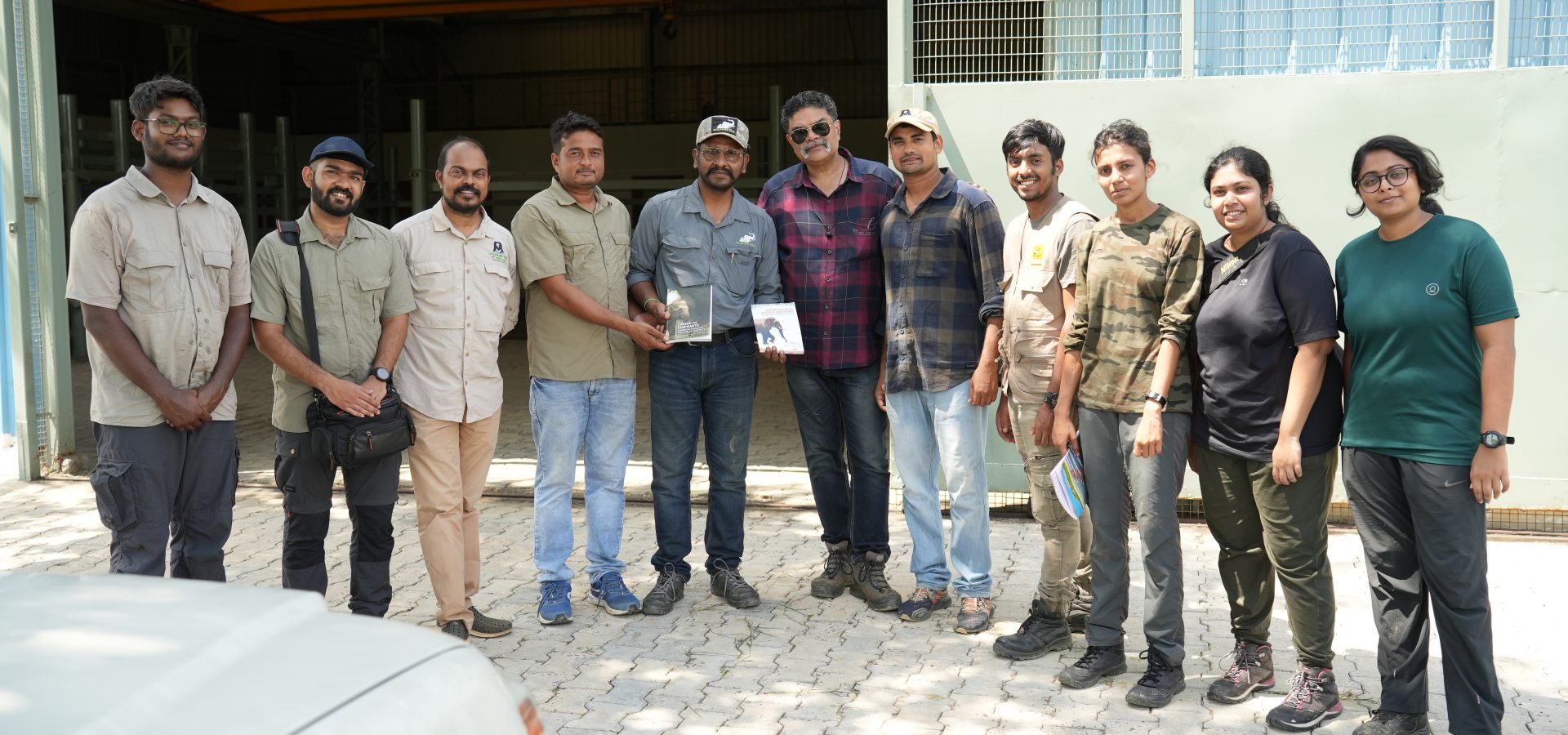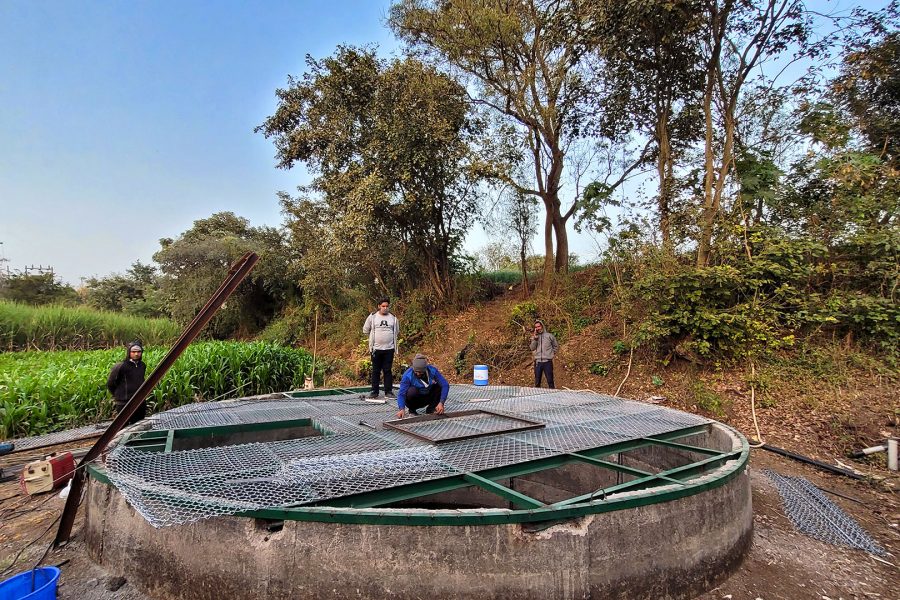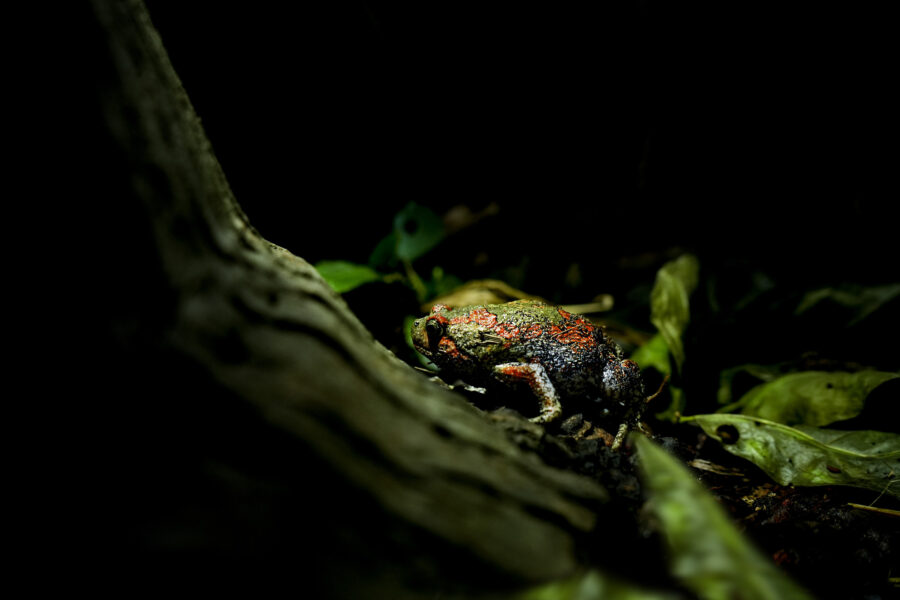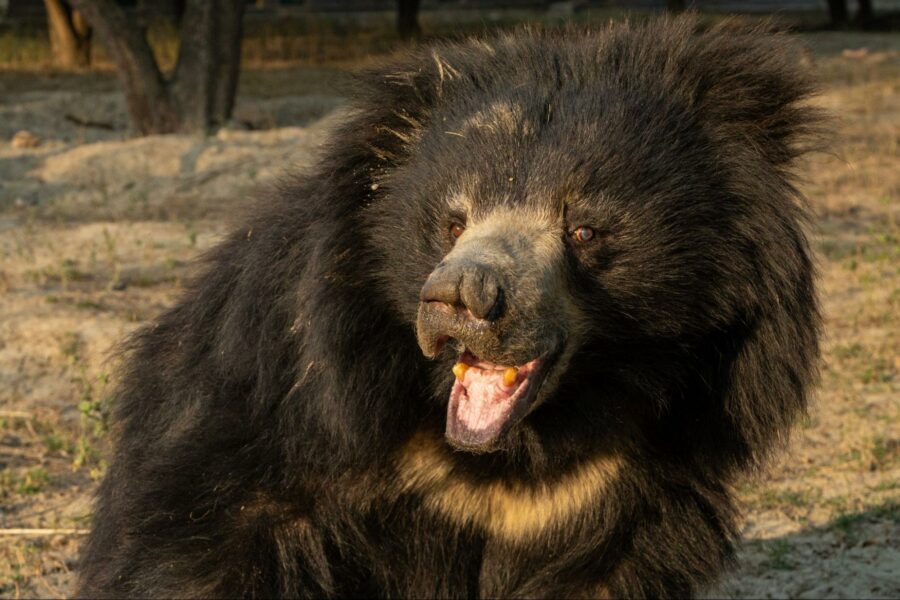Wildlife SOS strongly believes that education starts from the day one decides they want to learn. Abiding by this, Wildlife SOS recently collaborated with the Wildlife Institute of India (WII) to host a field tour and an awareness session for the students of the institute, along with Dr. Parag Nigam, Head of the Veterinary Department and the Head of the Elephant Cell at the Ministry of Environment, Forest and Climate Change (MOEFCC). WII has been running a master’s course in Wildlife Sciences since 1988, opening up great opportunities for young aspirants who wish to be closely involved with wildlife.
As a part of their elective paper, five of WII students visited our bear and elephant centres in Agra and Mathura. Over a span of two days, the attendees took part in various activities and interactive sessions held at the Elephant Conservation and Care Centre (ECCC) as well as the Agra Bear Rescue Facility (ABRF).
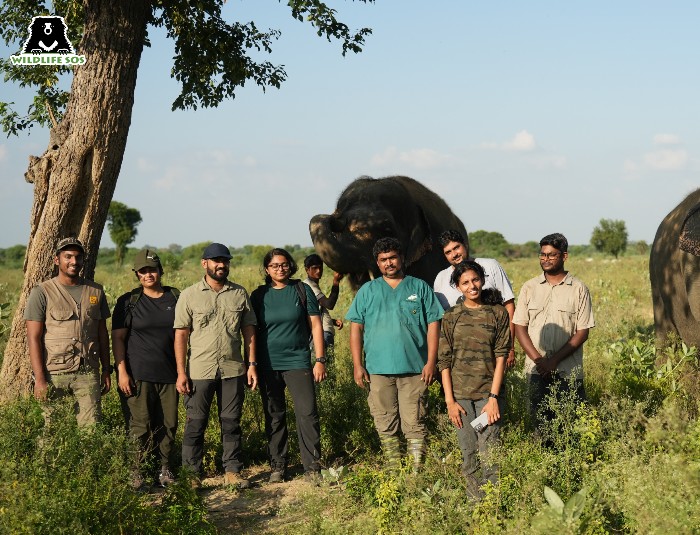
The first day started off with a visit to the Soor Sarovar Bird Sanctuary, accompanied by an insightful discussion on the major issues of wetland management and conservation. The students were keen to learn and know more on these subjects, and had many questions for our team. Soon after, the participants made their way to the Agra Bear Rescue Facility along with our team. Mr. Baiju Raj M.V., Senior Wildlife Biologist and Director of Conservation Projects with Wildlife SOS and Dr. S. Ilayaraja, the Deputy Director of Veterinary Services for Wildlife SOS, discussed the upkeep of bears that have been rescued from distress. This awareness session included the sensitive rehabilitation methods and techniques that are required for sloth bear management, the different health monitoring procedures that are being carried out and how biological samples are collected, preserved and transported for expert analysis.
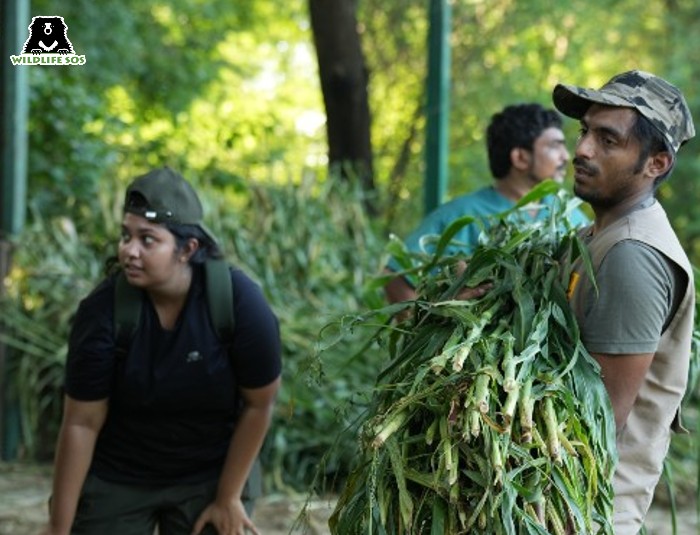
Furthermore, Mr. Baiju and Dr. Ilayaraja also conducted presentations about the environmental and nutritional enrichments for sloth bears, the husbandry and care provided to them, the preparation of their food, and the feeding habits of the sloth bears at our centre. This awareness session was followed by an introduction and practical demonstration of diagnostic medical tools and advanced techniques, radiography, field kits and the autoanalyser. All these instruments are present at our centre for examining the bears so that corresponding treatments can be prescribed. The students were also shown the routine treatments that are being given to some of our sloth bears.
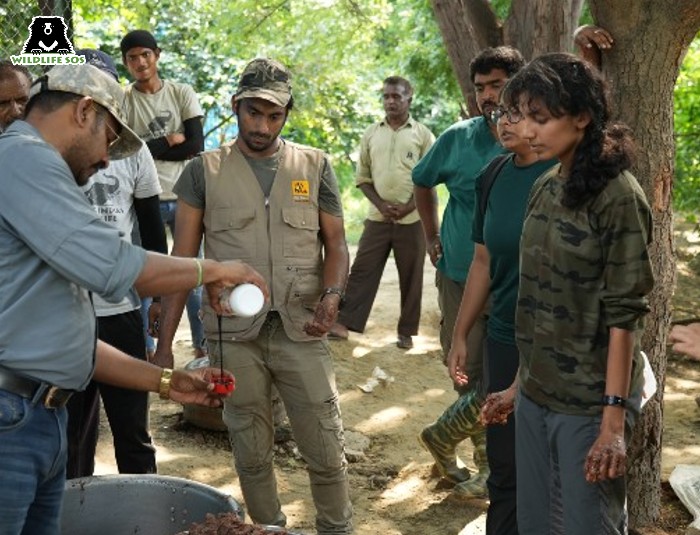
On the second day of their tour, the students visited the Elephant Conservation and Care Centre for an awareness session where Mr. Baiju, along with Dr. Ilayaraja and the elephant caregivers, provided insight into elephant health management. The participants learned about the different kinds of enrichments that are creatively designed and installed for the elephants, such as cage feeders, hanging tyres and wooden logs, to keep them physically and mentally active. Witnessing the positive impact these enrichments have on our pachyderms, the students came forward to create some enrichments for not only elephants, but also for sloth bears.
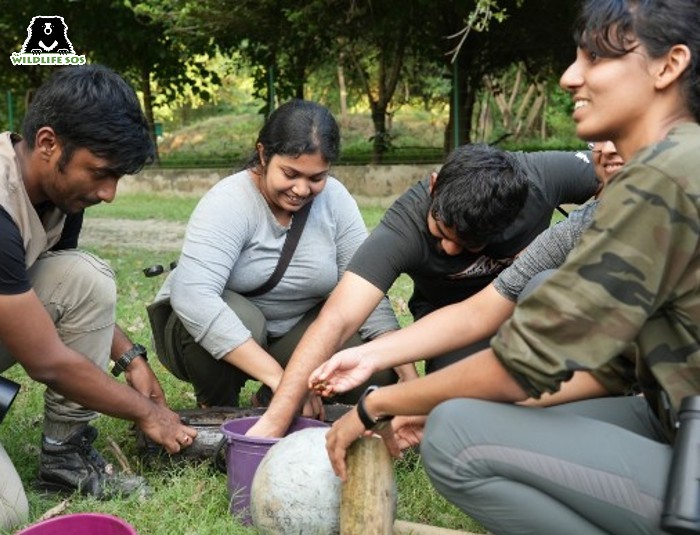
Rescued elephants carry a history of traumatic experiences from neglected captivity, which severely affected their body. Many of them suffer from persistent abscesses and joint conditions. The next awareness presentation made by our team began with a detailed explanation on how the health of elephants is monitored and the foot care they receive by our dedicated staff. It also included how positive reinforcement helps the elephants to cooperate during the treatment sessions that are based on their physical condition. The participants were informed about how a diet chart is created for every elephant, and how their food is prepared. There was also an awareness session on the management of geriatric elephants under our care.
Mr. Baiju also provided the students with a background on aquatic biodiversity that exists in the Yamuna Basin. He further explained about the different methods of rescue and rehabilitation of chelonians (animals that have a shell around its body) and other kinds of macrofauna. Students engaged in active conversation about the awareness and conservation of river turtles during a river watch session, and they were also able to spot two species of turtles at that time.
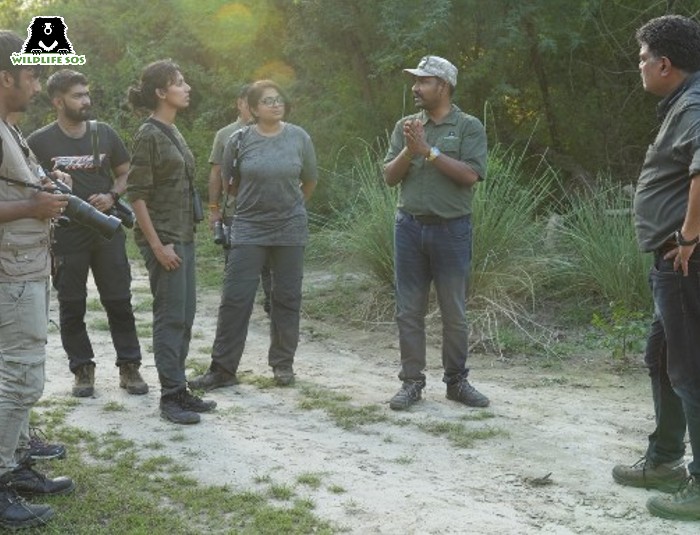
The two-day field trip to our centres offered a focused, practical experience to wildlife enthusiasts who have pursued education in a field that supports wildlife conservation. Our awareness session and the collaboration with the students of WII aimed to boost their willingness to learn more about animals and the threats they have been facing. Wildlife SOS encourages visitors and volunteers at our centres to actively participate and take confident steps to make a positive change. If you would like to visit ECCC or ABRF, connect or reach out to us at visit@wildlifesos.org for more information!

